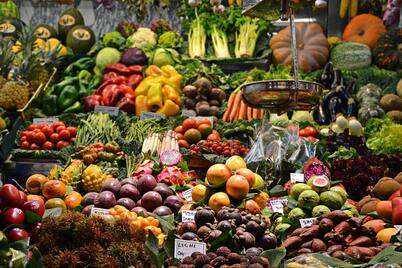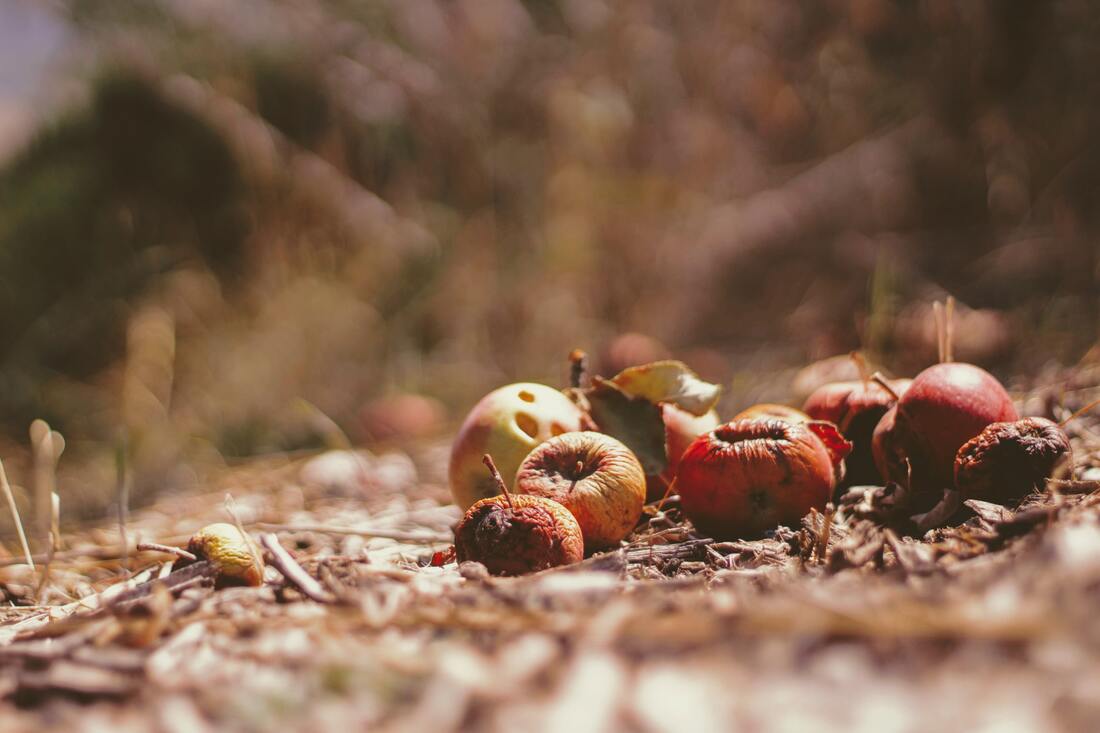|
Food waste is perhaps one of the easiest and most important areas of waste reduction that we can focus on in our daily lives. According to the Natural Resources Defense Council (NRDC), "up to 40 percent of the food in the United States in never eaten." We must consider the significance of this statement both through the lens of current food insecurity statistics, and through the ecological damage producing this excess waste creates when the food goes to the landfill and produces a damaging greenhouse gas called methane (NRDC). According to Yale Climate Connections, "As much as 11 percent of greenhouse gas emissions could be eliminated if food waste were brought to zero" (Spiegel). Clearly, food waste has a dramatic impact on climate change and the condition of our earth. On a smaller level, another consideration is that by minimizing food waste in your own home you have the opportunity to dramatically lower your grocery bill. From a broad view, one of the most important changes we can make as a country is to focus on "implementing strategies that prevent surpluses of food from occurring in the first place" (Spiegel). One of these primary sources of detrimental emissions is from animals raised for food. KCB isn't suggesting that you adhere to a vegan lifestyle unless that is something which you feel is right for you, however, considering incorporating "Meatless Monday" (or Thursday, lol) into your weekly diet could lower the demand placed upon the meat industry and subsequently help to lower the demand for animal products. While some level of responsibility falls upon the consumer to implement personal strategies to make sure that they aren't creating food waste, we can also consider the impact of the seller and how they package the meat and other animal products which are on the market. Incorporating simple additions, such as highly legible dating on product packaging, makes a difference. Sellers also need to be held accountable for over-production of food products. Participating in programs which send excess food to low-income families is one way that companies can work to avoid detrimental food waste. But how can we as individuals reduce the amount of food waste we produce?
The process of reducing food waste in the home is one that comes down to mindfulness. Be aware. Invest your time and care into how you structure the way purchase, store, prepare, and consume your food items. Each small change has the potential to create positive change for the better. Resources: FDA. Tips to Reduce Food Waste. https://www.fda.gov/food/consumers/tips-reduce-food-waste NRDC. Food Waste, What's at Stake. https://www.nrdc.org/food-waste Spiegel, Jan Ellen. (2019). Food Waste Starts Long Before Food Gets To Your Plate. Yale Climate Connections.https://yaleclimateconnections.org/2019/05/food-waste-has-crucial-climate-impacts/?gcli
0 Comments
Leave a Reply. |
AuthorStef Glass is the Education Coordinator for Keep Chadron Beautiful. She graduated from Chadron State College with her BA in English Literature and minors in History and Creative Writing in May of 2018. Archives
June 2022
Categories |
Proudly powered by Weebly



 RSS Feed
RSS Feed